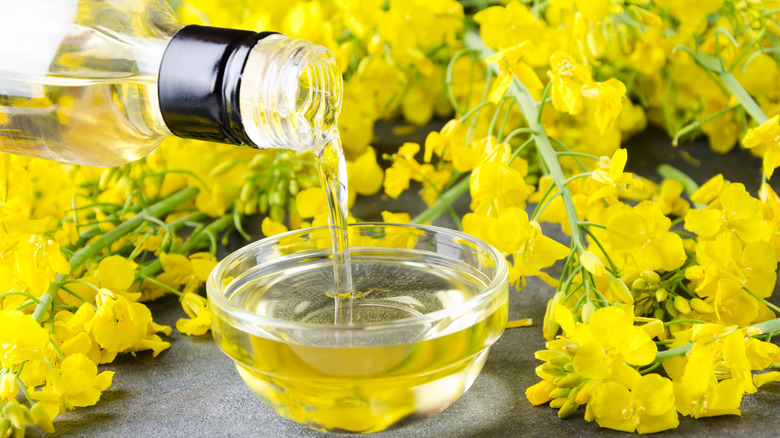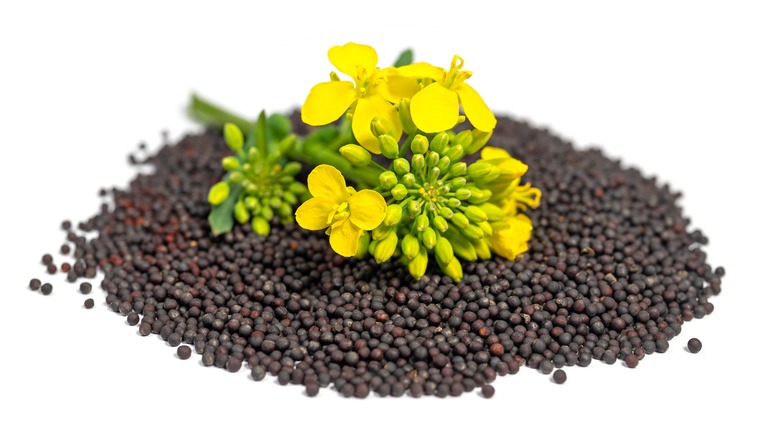Are Canola And Rapeseed Oil The Same Thing?
Odds are you have a bottle of canola oil in your pantry. Touted for its high smoke point and neutral flavor, canola is a versatile cooking oil with endless applications in the kitchen. Behind palm and soybean, canola is the third major vegetable oil produced in the world, per Science Direct. Odds are you do not have a bottle labeled rapeseed oil in your pantry, but that doesn't mean it's not there. Confused yet?
The rapeseed plant is a member of the Brassicaceae family and cousin to popular crucifers like Brussels sprouts, cabbage, and turnips. They produce bright, yellow flowers and dark, small seeds from which the oil is pressed.
Many people use the terms canola oil and rapeseed oil interchangeably, and you may come across the term "rapeseed" online. To add to the confusion, Europeans use the term rapeseed oil for what Americans refer to as canola oil, per Medical News Today, and their grocery store labels reflect that. But are the two oils the same thing?
The difference between canola and rapeseed oil
Technically no, canola oil and rapeseed oil are not the same, but the difference is relatively minor. They are derived from the same plant, but different adaptations of it.
Canola oil is a modified version of rapeseed oil. Rapeseed oil has been around in an industrial capacity for many years. It was used as lamp oil before it was replaced with petroleum, as well as a lubricant and biodiesel component, per Feed Strategy.
Rapeseed oil contains erucic acid and glucosinolates. In large amounts, erucic acid is toxic to humans. Glucosinolates are naturally found in cruciferous plants and responsible for the bitter taste they're known for, but are undesirable in large amounts, per Harvard.
In the 1970s, Canadian scientists crossbred the rapeseed crop to reduce the erucic acid levels to no more than 2%. What resulted was a new plant dubbed "canola" — a hybrid of "Canada" and "ola" for oil. Oil from the seeds of the canola plant is suitable for culinary applications (via Canola Council).
In summary, canola oil is rapeseed oil with less erucic acid and glucosinolates, making it safe for consumption. Generally, the bottles you see on grocery shelves are canola oil made from the crossbred rapeseed plant.

